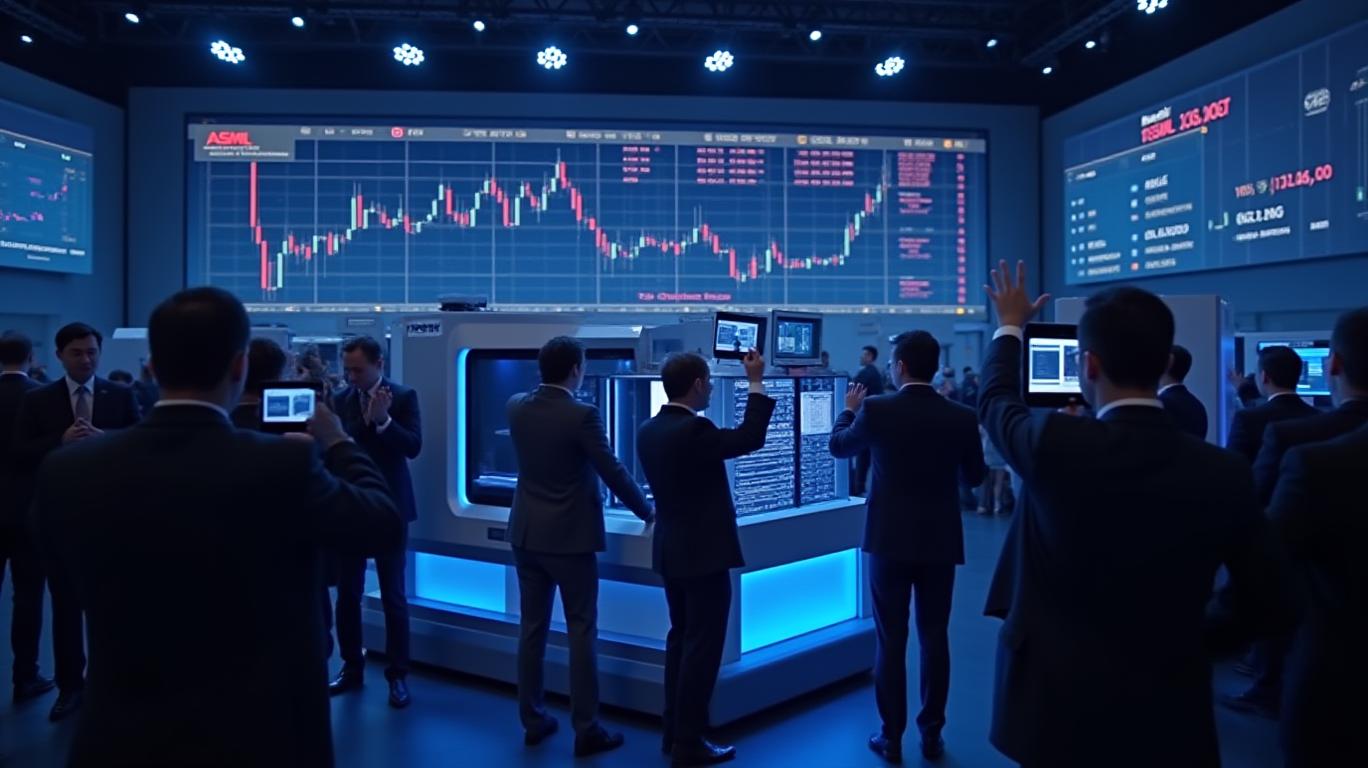ASML Shares Surge as TSMC's Capital Expenditure Forecast Fuels Demand for EUV Technology
ASML, the Dutch semiconductor equipment manufacturer, saw its shares rise by 3.30% on January 16th. In pre-market trading on the same day, shares surged over 4.3% to $757.68. This uptick followed an announcement from TSMC, the world's largest contract chipmaker, regarding its forecasted capital expenditures for 2025, which are expected to range between $38 billion and $42 billion. This figure significantly surpasses market expectations of $35.15 billion and suggests that TSMC might be planning to purchase more lithography machines from ASML to meet increasing order demands.
The anticipated rise in capital expenditures at TSMC reflects a broader industry trend where there is a growing need for advanced semiconductor technology. As the sole supplier of extreme ultraviolet (EUV) lithography machines, ASML is positioned to benefit from this increase in demand. These machines are critical for producing the latest generation of semiconductors, and an uptick in orders from leading chipmakers underscores ASML's essential role in the global semiconductor supply chain.
ASML's advanced lithography machines are crucial for pushing the limits of Moore's Law, which posits that the number of transistors on a microchip doubles approximately every two years. The company's dominance in the lithography market provides it with a competitive edge and places it at the center of technological advancements within the semiconductor industry.
While ASML stands to gain from increased purchases by TSMC, other semiconductor manufacturers are also expected to enhance their production capabilities. This trend highlights ASML's significant influence and the importance of its technology in meeting the world's growing demand for faster and more efficient chips.
Looking forward, market observers remain optimistic about ASML's prospects amid the industry's continued investment in advanced semiconductor manufacturing. This investment is crucial for supporting emerging technologies such as artificial intelligence, high-performance computing, and 5G, all of which require state-of-the-art chip designs. As such, ASML remains a key player poised to capitalize on these promising industry developments.

Knowing stock market today at a glance
Latest Articles
Stay ahead of the market.
Get curated U.S. market news, insights and key dates delivered to your inbox.

Comments
No comments yet